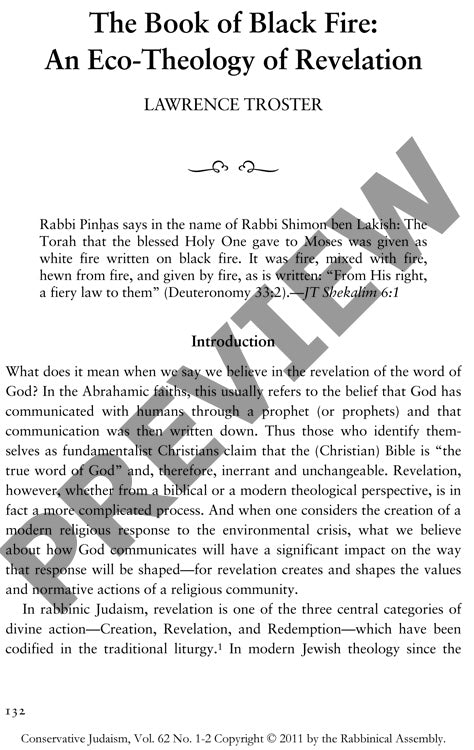The Book of Black Fire an Eco Theology O
Couldn't load pickup availability
The traditional textual approaches to Jewish environmentalism have reached a theological dead end, necessitating a radical rethinking of how revelation operates in Jewish environmental theology. By integrating Process Thought, scientific worldviews, and religious perspectives through a constructive post-modern methodology, a new understanding emerges: creation itself, rather than texts alone, serves as the primary source of divine revelation. Drawing on Thomas Berry's insights and Robert Cover's jurisprudential framework, this research identifies three vital sources of revelation previously overlooked: scriptural counter-voices, experiential wisdom from environmental and marginalized communities, and scientific understanding from ecology and cosmology. While traditional Jewish texts retain their spiritual significance, they must be supplemented by creation-centered revelation to develop comprehensive responses to environmental challenges. The analysis demonstrates that revelation should be understood as a dynamic divine-human encounter within the natural world rather than static propositional content. This reconceptualization enables Jewish communities to generate new ritual practices and moral imperatives essential for addressing contemporary environmental crises while maintaining continuity with Jewish theological tradition. The resulting eco-theology of revelation provides a framework for expanding Jewish environmental spirituality beyond conventional textual boundaries into a more encompassing and responsive environmental ethic.

More Information
-
Physical Description
-
Publication Information
Published 2010-2011
ISBN
-
Publication Credits
Lawrence Troster

